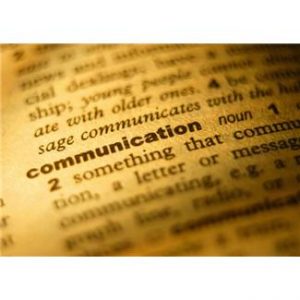Businesses, relationships, and most other things in life that involve more than one person are all dependent on effective communication. Any amount of time spent in a foreign country with a different national  language than your own will quickly teach you how much more difficult just about every aspect of life is when basic communication becomes a struggle.
language than your own will quickly teach you how much more difficult just about every aspect of life is when basic communication becomes a struggle.
Even in a context where everyone speaks the same language, miscommunication is a serious concern. Many businesspeople have dealt with an email that included an embarrassing typo or a badly worded message that caused confusion and inefficiency. Avoid such failures with these basic tips to ensure effective communication.
1. For written communication: always proofread!
Have you ever gotten an email that just didn’t make sense because words seemed to be missing or were egregiously misspelled? It happens, but it’s so easy to avoid. Proofread everything you write before you send it. In addition to catching basic typos and any sentences that don’t make sense, you’re more likely to catch spots in your writing that lack clarity or could use better wording.
2. Method matters
There are varying benefits to using phone, online chat, and e-mail. A phone call allows for conversations in real time, where multiple people can bounce ideas off each other or make a quick decision in order to meet a deadline. Email correspondence has the benefit of keeping an easily searchable record, enabling attachments and link sharing, and letting the respondent review the email and get back to you on their own time. Chat offers some of the benefits of both: it’s in real time, but also makes it easy to keep a record, for example. To determine which communication method is best for your needs, think about what you need to communicate and the type of response you want.
3. Stay Aware of Your Tone
Try reading emails out loud before sending, sometimes the tone in your head isn’t the one the respondent will hear when they read it. You don’t want to come off as angry or scolding when you don’t mean to be. Be careful that the language you choose isn’t loaded and likely to be misconstrued. Be aware of context, an email to your client should probably have a different tone than one sent to your sister.
4. Don’t Be Afraid to Ask Questions
Arrogance and assumptions are the cause of too many errors. Don’t pretend you know what someone’s saying if you don’t, and don’t assume you do if you’re not sure. Few people are offended or bothered by being asked for clarification, and the type of person who does get bothered by it will almost certainly be more upset with you if the failure to ask leads to an inferior result. More clarity is always better.
5. Know Your Audience
Keep in mind the level of likely knowledge the person you’re communicating with will have. Correspondence with someone who has been working in your industry for years will probably seem prohibitively complex and have too much jargon for someone outside of the industry to grasp. Tailor your writing style accordingly, aim to make all your correspondence as informative and easy for the reader to understand as possible.
6. Read
One of the best tricks to get better at writing and speaking is to read often. You gain a better grasp of language and the most effective ways to use it. The more words and ideas you pick up from skilled writers, the more their techniques will slip into the way you communicate.
